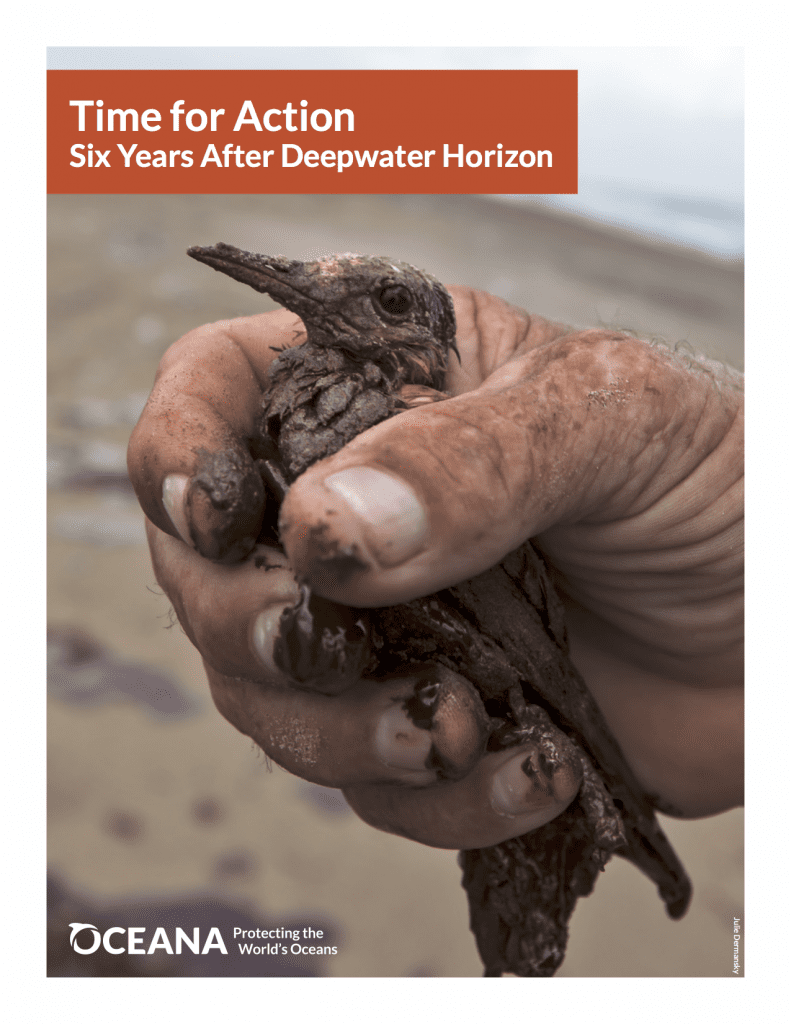Report | April, 2016
Time for Action: Six Years After Deepwater Horizon
Oceana’s report highlights the long-term impacts of the worst environmental disaster in U.S. history, which began on April 20, 2010. In the report, Oceana reviews the most recently published research that documents the damage from the oil spill to the Gulf of Mexico’s marine wildlife, habitats and communities.
The report’s key findings include:
- Mortality rates for common bottlenose dolphins living in Barataria Bay, Louisiana were 8 percent higher and their reproductive success was 63 percent lower compared to other dolphin populations.
- An estimated 600,000 to 800,000 birds died as a result of the spill.
- Harmful oil and/or oil dispersant chemicals were found in about 80 percent of pelican eggs that were laid in Minnesota, more than 1,000 miles from the Gulf, where most of these birds spend winters.
- Oil exposure caused heart failure in juvenile bluefin and yellowfin tunas, reduced swimming ability in juvenile mahi-mahi and caused gill tissue damage in killifish.
- The oil plume caused bleaching and tissue loss in deep-water coral reefs over an area three times larger than Manhattan.
- Endangered sea turtles that had migrated to the Gulf from Mexico, South America and West Africa died in the spill, demonstrating the global scale of impacts.
- The 50,000 people involved in the spill cleanup were exposed to chemicals that severely damage lung tissue.
- Cleanup workers and their spouses reported increased depression and domestic disputes.
- Even Gulf residents indirectly affected by the spill suffered from increased anxiety and depression.
- It can take a decade or more for oil spill victims to recover from the physical and psychological effects of an oil disaster.
- The impact of the oil spill on fisheries could total $8.7 billion by 2020, including the loss of 22,000 jobs.
- 10 million user-days of beach, fishing and boating activity were lost.
Read the Press Release
Media contact: Dustin Cranor: 202.341.2267 (office); 954.348.1314 (cell) or dcranor@oceana.org




